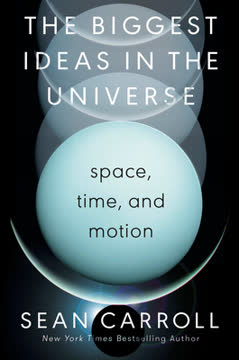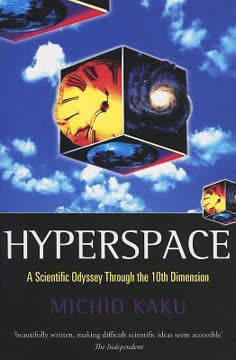Key Takeaways
1. Quantum computers will revolutionize computing power and transform industries
"We believe that we're right on the cusp of providing capabilities you can't get with classical computing."
Exponential power increase. Quantum computers leverage quantum mechanical phenomena like superposition and entanglement to perform calculations exponentially faster than classical computers for certain problems. While a classical bit can only be 0 or 1, a qubit can exist in a superposition of states, dramatically increasing information density.
Wide-ranging applications. Industries poised for disruption include:
- Drug discovery and medical research
- Financial modeling and optimization
- Artificial intelligence and machine learning
- Cryptography and cybersecurity
- Climate modeling and materials science
Economic impact. The quantum computing market is projected to reach tens of billions of dollars by 2030. Early adopters in fields like chemistry, finance, and logistics stand to gain significant competitive advantages as the technology matures.
2. The quantum world operates on counterintuitive principles that enable incredible computing potential
"Anyone who is not shocked by the quantum theory does not understand it."
Quantum weirdness. Key quantum phenomena that enable quantum computing include:
- Superposition - particles existing in multiple states simultaneously
- Entanglement - instantaneous correlation between distant particles
- Tunneling - particles passing through seemingly impenetrable barriers
- Wave-particle duality - matter and energy behaving as both particles and waves
Harnessing quantum effects. Quantum computers exploit these phenomena to perform parallel computations and explore multiple solutions simultaneously. For example, a quantum computer could analyze all possible paths between two points at once, rather than checking them sequentially like a classical computer.
Philosophical implications. Quantum mechanics challenges our intuitions about the nature of reality. Concepts like objective reality, determinism, and locality break down at the quantum scale. This has sparked debates about consciousness, free will, and the nature of existence itself.
3. Major tech companies and nations are racing to develop practical quantum computers
"It's no longer a matter of if, but when."
Big players investing heavily. Tech giants like IBM, Google, Microsoft, and Intel are pouring billions into quantum R&D. Startups like Rigetti and D-Wave are also making significant advances. Nations including the US, China, and EU countries are funding major quantum initiatives.
Different approaches. Main quantum computing architectures being pursued:
- Superconducting qubits (Google, IBM)
- Trapped ions (Honeywell, IonQ)
- Topological qubits (Microsoft)
- Photonic qubits (PsiQuantum)
Milestones and projections. Google claimed "quantum supremacy" in 2019, performing a calculation in minutes that would take millennia on classical supercomputers. IBM aims for a 1,000+ qubit system by 2023. Useful, error-corrected quantum computers are projected for the 2030s.
4. Quantum computers could crack current encryption and revolutionize cybersecurity
"Those running blockchain projects will likely be keeping a nervous eye on quantum computing advancements."
Encryption threat. Quantum computers could potentially break widely used public-key cryptography systems like RSA, threatening the security of financial transactions, secure communications, and sensitive data. This has major implications for national security, financial systems, and personal privacy.
Post-quantum cryptography. Researchers are developing new encryption methods resistant to quantum attacks. The US National Institute of Standards and Technology (NIST) is working to standardize post-quantum cryptography algorithms.
Quantum cryptography. Quantum key distribution (QKD) leverages quantum principles to create theoretically unbreakable encryption. This could enable ultra-secure communication channels immune to both classical and quantum attacks.
5. Quantum computing may unlock solutions to climate change and renewable energy
"Quantum computers also hold immense potential from an environmental perspective, and experts predict that, through quantum simulations, they will be instrumental in helping countries meet the United Nation's Sustainable Development Goals."
Climate modeling. Quantum computers could create far more accurate climate models, helping predict impacts and develop mitigation strategies. They could simulate complex atmospheric and oceanic systems beyond the reach of classical supercomputers.
Clean energy breakthroughs. Potential applications include:
- Optimizing wind farm layouts and turbine designs
- Improving solar cell efficiency through better material design
- Enhancing battery technology for energy storage
- Catalyzing more efficient carbon capture techniques
Fusion power. Quantum simulations could help solve plasma containment challenges in fusion reactors, potentially unlocking a virtually limitless clean energy source.
6. Medicine and drug discovery will be radically accelerated by quantum computing
"We were able to design coronavirus-neutralizing proteins in several months. But our goal is to do this kind of thing in a couple of weeks."
Protein folding solved. In 2020, DeepMind's AlphaFold quantum-inspired AI system solved the protein folding problem, a longstanding challenge in biology. This breakthrough promises to accelerate drug discovery and our understanding of diseases.
Drug development acceleration. Quantum computers could:
- Simulate drug interactions at the molecular level
- Optimize drug formulations and delivery mechanisms
- Predict side effects and drug efficacy more accurately
- Design personalized treatments based on individual genetics
Disease understanding. Quantum simulations could provide unprecedented insights into the molecular mechanisms of diseases like cancer, Alzheimer's, and genetic disorders, leading to new treatment approaches.
7. Quantum simulations could unravel mysteries of the universe and fundamental physics
"Perhaps one day quantum computers may find the answer."
Cosmological simulations. Quantum computers could model the early universe, galaxy formation, and the behavior of dark matter and dark energy with unprecedented accuracy. This could help resolve fundamental questions in cosmology and astrophysics.
Particle physics. Simulating quantum field theories and high-energy particle interactions could lead to breakthroughs in our understanding of fundamental forces and particles. This could aid in the search for new physics beyond the Standard Model.
Quantum gravity. Reconciling quantum mechanics with general relativity is one of the greatest challenges in physics. Quantum computers might help develop and test theories of quantum gravity, potentially unifying our understanding of the universe.
8. Ethical considerations and potential risks accompany the quantum revolution
"Perhaps it gives hope."
Dual-use technology. Like nuclear technology, quantum computing has both beneficial and potentially harmful applications. Ensuring responsible development and use will be crucial.
Economic disruption. Quantum computing could render certain industries and job roles obsolete while creating new opportunities. Managing this transition equitably will be important.
Existential risk. Some philosophers and scientists worry that sufficiently advanced quantum AI could pose existential risks to humanity if not developed carefully with proper safeguards.
Equitable access. Ensuring that quantum computing benefits are distributed globally and not concentrated in the hands of a few powerful entities will be an important consideration.
Last updated:
FAQ
What's Quantum Supremacy about?
- Exploration of Quantum Computing: Quantum Supremacy by Michio Kaku explores the revolutionary potential of quantum computers, which can outperform traditional computers in specific tasks.
- Impact on Various Fields: The book discusses how quantum computing could transform industries such as medicine, energy, and artificial intelligence.
- Historical Context and Future Implications: Kaku provides a historical overview of computing and speculates on the future impact of quantum computing on society and the economy.
Why should I read Quantum Supremacy?
- Insightful Perspective: Michio Kaku offers a unique perspective as a theoretical physicist, making complex topics accessible to a general audience.
- Relevance to Current Issues: The book addresses pressing global challenges, such as climate change and food security, and discusses how quantum computing could provide solutions.
- Visionary Ideas: Kaku presents visionary ideas about the future of humanity and technology, encouraging readers to think critically about the implications of quantum advancements.
What are the key takeaways of Quantum Supremacy?
- End of the Silicon Age: The book argues that we are witnessing the end of the silicon era in computing, as quantum computers emerge as the next frontier.
- Quantum Medicine: Kaku discusses the potential of quantum computing to revolutionize medicine, including gene editing and cancer treatment.
- Environmental Solutions: The book highlights how quantum computing could help address environmental issues, such as improving photosynthesis and creating sustainable energy solutions.
What are the best quotes from Quantum Supremacy and what do they mean?
- "It’s no longer a matter of if, but when.": Reflects the urgency and inevitability of quantum computing becoming mainstream.
- "Nature isn’t classical, dammit, and if you want to make a simulation of nature, you’d better make it quantum mechanical.": Highlights the necessity of using quantum mechanics to accurately model natural processes.
- "We believe we’re right on the cusp of providing capabilities you can’t get with classical computing.": Captures the transformative potential of quantum computing.
What is quantum supremacy as defined in Quantum Supremacy?
- Definition of Quantum Supremacy: Quantum supremacy is the point at which a quantum computer can perform a calculation that is infeasible for any classical computer.
- Examples of Achievements: Google's Sycamore quantum computer solved a problem in 200 seconds that would take the fastest supercomputer 10,000 years.
- Implications for the Future: Kaku discusses the broader implications of achieving quantum supremacy, including potential disruptions in various industries.
How do quantum computers differ from classical computers?
- Basic Operational Differences: Quantum computers use qubits, which can exist in multiple states simultaneously due to superposition, unlike classical bits that are either 0 or 1.
- Entanglement: Qubits can be entangled, meaning the state of one qubit can depend on the state of another, regardless of distance.
- Applications: Quantum computers excel in optimization problems, simulations of molecular interactions, and cryptography.
What role do quantum computers play in medicine according to Quantum Supremacy?
- Revolutionizing Drug Discovery: Quantum computers can simulate molecular interactions at an unprecedented level, potentially leading to the discovery of new drugs.
- Gene Editing: Quantum computing could enhance gene editing technologies like CRISPR by accurately modeling genetic interactions.
- Understanding Diseases: Quantum computers could unravel the complexities of diseases such as cancer and Alzheimer’s, leading to breakthroughs in prevention and treatment strategies.
How can quantum computers help address climate change?
- Improving Photosynthesis: Quantum computers could model the process of photosynthesis at the molecular level, leading to more efficient artificial photosynthesis systems.
- Energy Solutions: Quantum computing could optimize energy systems, making renewable energy sources more efficient.
- Carbon Recycling: Quantum computers could aid in developing technologies for recycling carbon dioxide into useful products.
What challenges do quantum computers face as mentioned in Quantum Supremacy?
- Decoherence: Maintaining coherence in quantum systems is challenging, as external disturbances can disrupt quantum states.
- Error Correction: Robust error correction methods are needed to ensure the accuracy of quantum computations.
- Scalability: Scaling quantum computers to a large number of qubits remains a significant technical hurdle.
How does Quantum Supremacy address the future of quantum computing?
- Predictions for Advancement: Kaku speculates on the rapid advancements in quantum computing technology, suggesting significant breakthroughs are imminent.
- Global Competition: The book discusses the intense competition among nations and corporations to lead in quantum technology.
- Ethical Considerations: Kaku raises questions about the ethical implications of quantum technology, particularly in areas like cryptography and data security.
What role do AI and quantum computers play together as discussed in Quantum Supremacy?
- Complementary Technologies: AI and quantum computing are complementary technologies that can enhance each other's capabilities.
- Accelerating Research: The combination of AI and quantum computing can accelerate research in various fields, including drug discovery and climate modeling.
- Innovative Applications: Examples include optimizing supply chains and improving predictive analytics, driving future technological advancements.
How does Quantum Supremacy envision the future of humanity with quantum technology?
- Enhanced Quality of Life: Quantum technology could significantly improve the quality of life through advancements in healthcare, energy, and communication.
- Global Collaboration: International collaboration will be essential to address the challenges posed by climate change and other pressing issues.
- Exploration of the Universe: Quantum computing will enable humanity to explore the universe more effectively, unlocking secrets about the cosmos.
Review Summary
Quantum Supremacy receives mixed reviews. Some praise Kaku's explanations of quantum computing's potential impacts across various fields, while others criticize the book's repetitive nature and lack of in-depth explanations about quantum computing itself. Positive reviews highlight Kaku's enthusiasm and accessible writing style, while negative reviews point out the book's speculative nature and overreliance on "may" and "might" statements. Overall, readers found the book informative but often lacking in technical details about quantum computing's inner workings.
Similar Books










Download PDF
Download EPUB
.epub digital book format is ideal for reading ebooks on phones, tablets, and e-readers.












